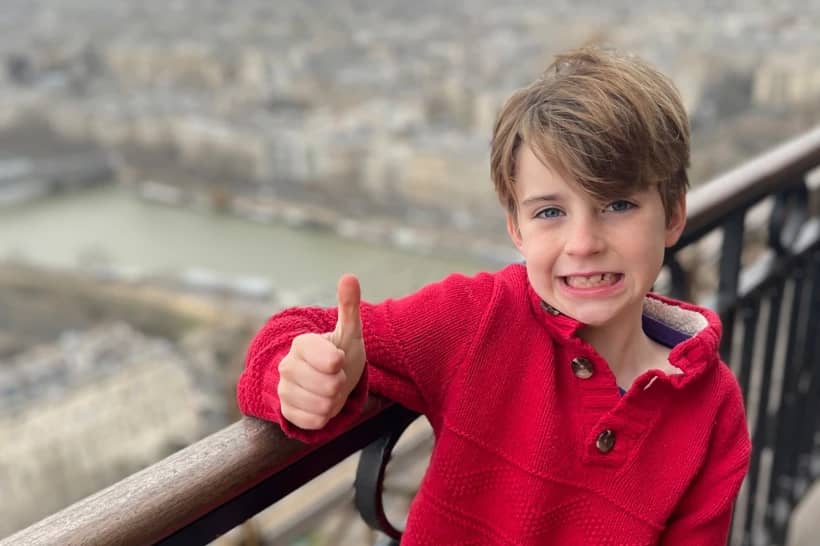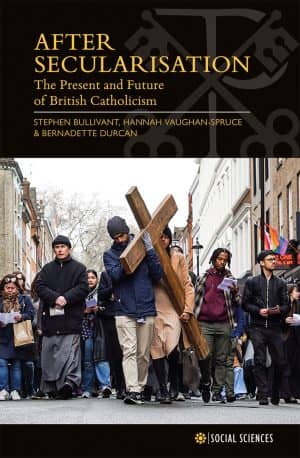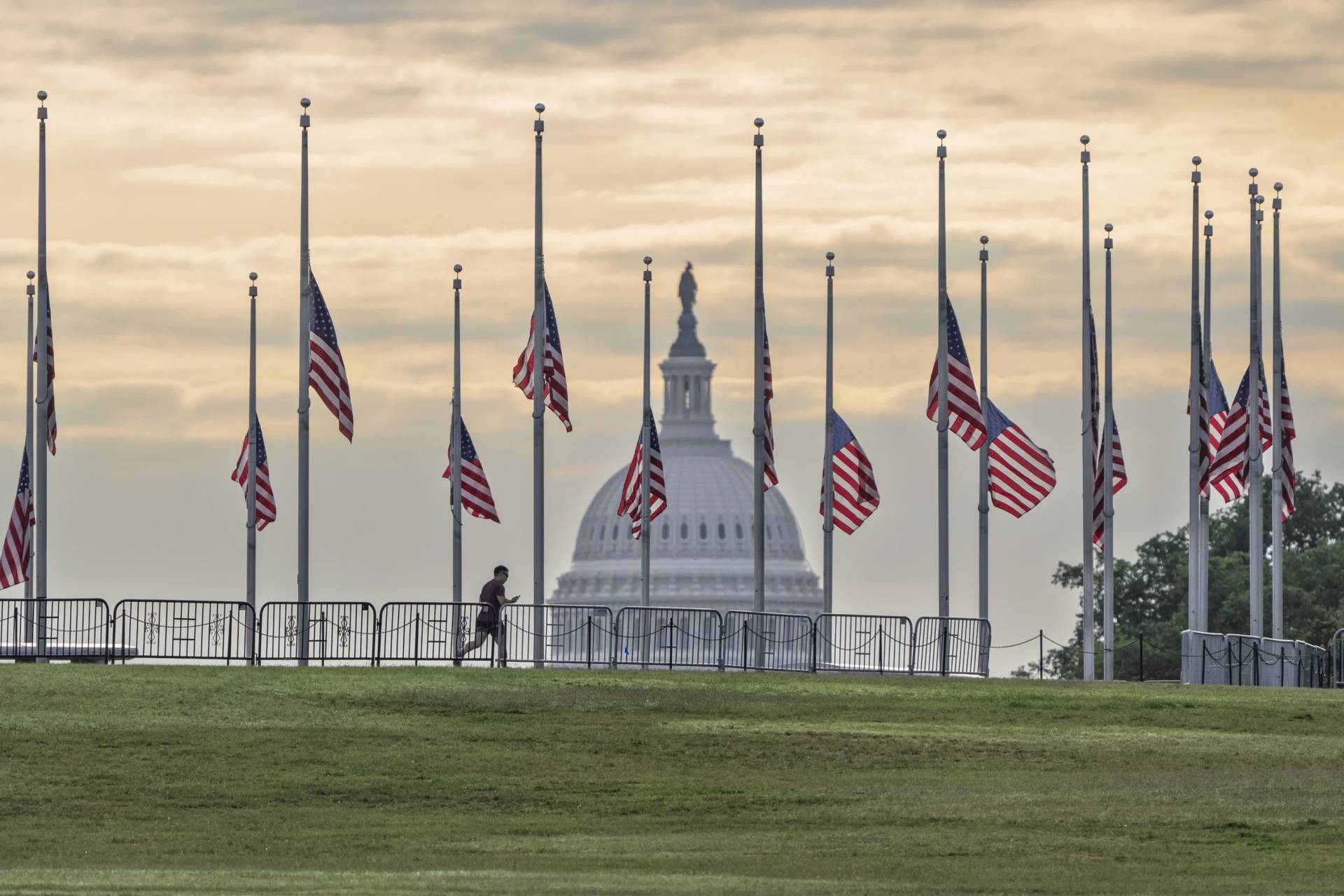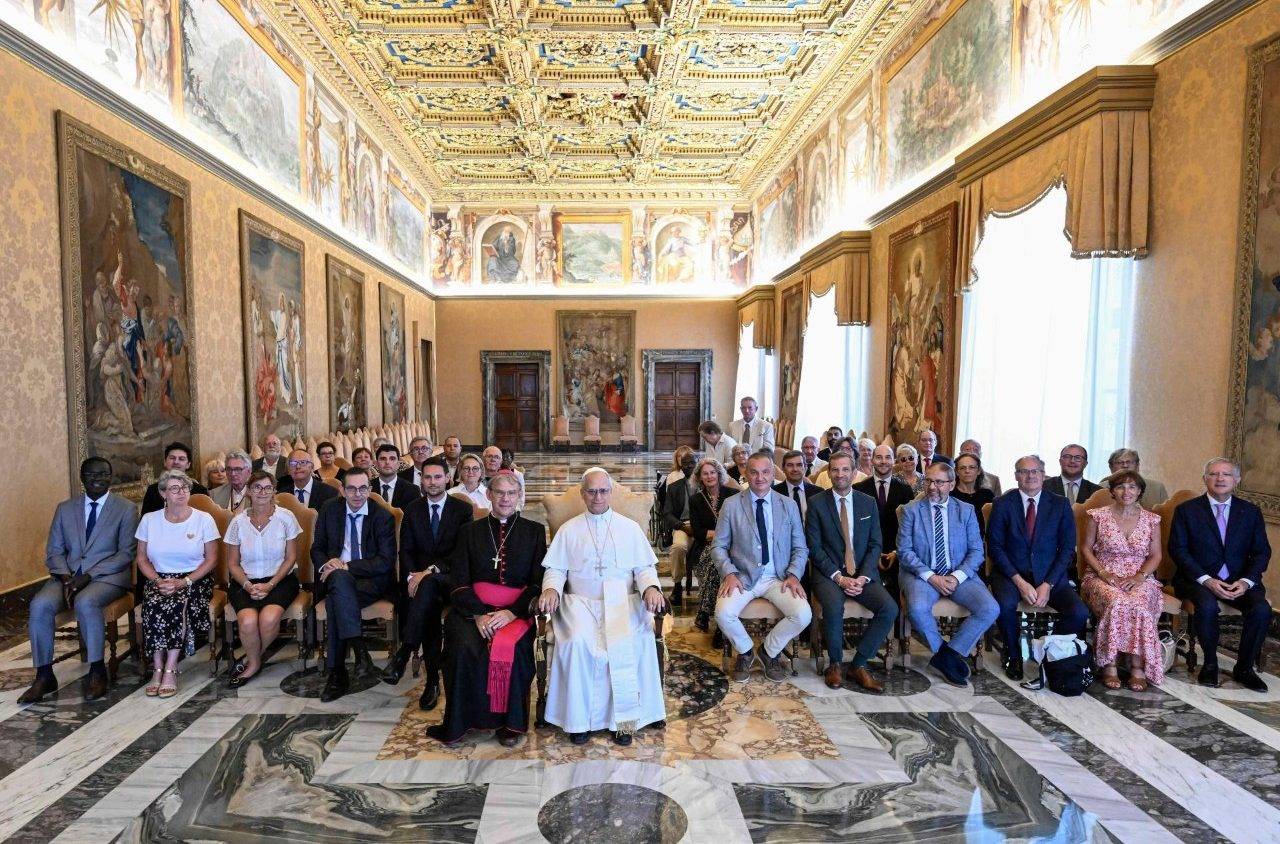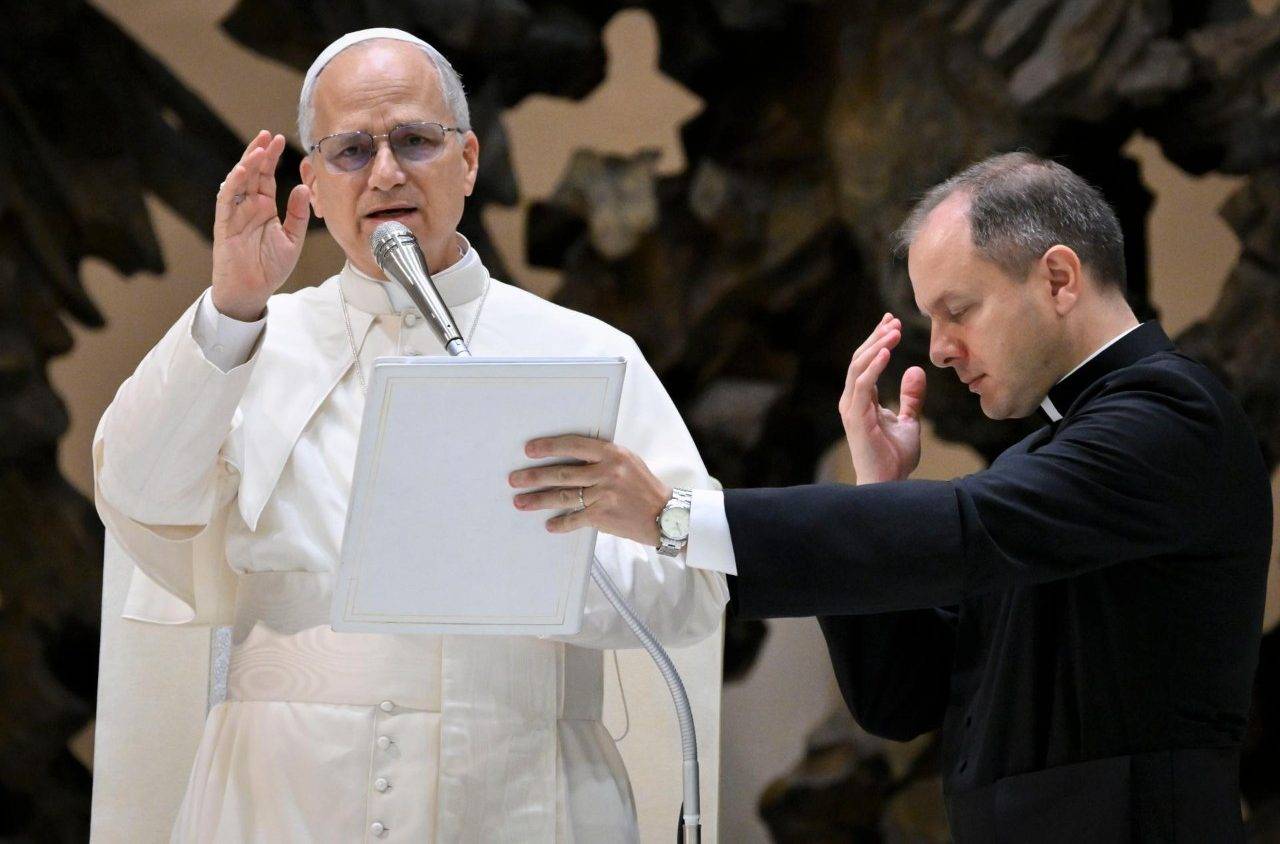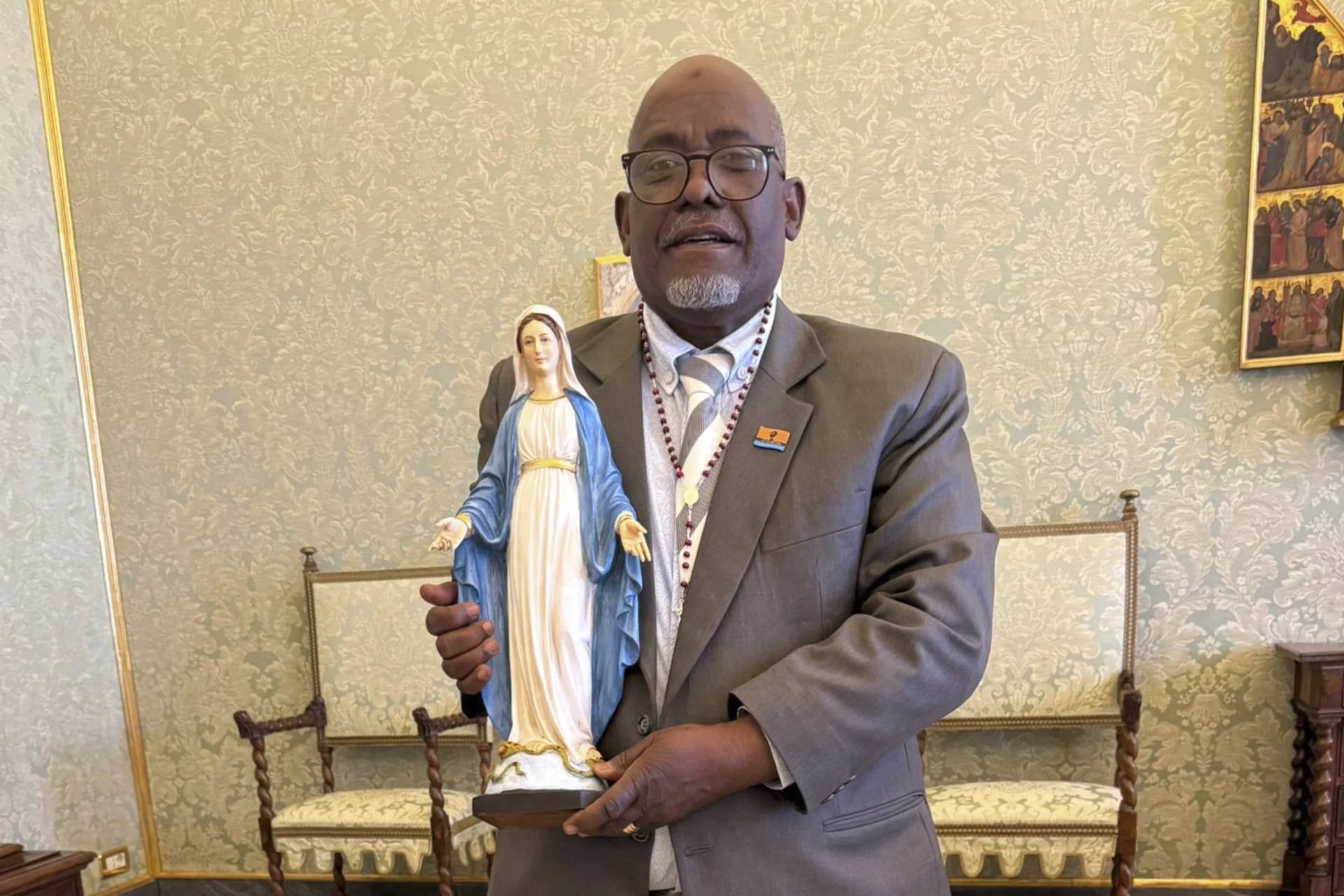ROME – Although superficially, “The Two Popes” is about an imagined conversation between Pope Benedict XVI and then-Cardinal Jorge Mario Bergoglio – today Pope Francis – for the director of the film it is all about guilt, forgiveness and dialogue.
“The film is on guilt,” said Fernando Meirelles, best known for the films City of God and The Constant Gardener.
In the movie, “both popes have done really stupid things in their past, and they feel guilty about it,” Meirelles said.
The movie is about the two, talking “about what they feel guilt for, and they have to forgive themselves and forgive the other.”
“So forgiveness is one of the main themes of the film [too],” he said.
Though the premise of the film itself is fabricated – a conversation between Benedict and his successor in 2012 that never actually took place – many facts are interwoven within the fantasy, and most of the dialogue is rooted in things they have actually said.
“I wanted to make it a film not about a pope and a cardinal, but about two men who talk, and disagree,” he told Crux on Thursday while in Rome promoting the film.
According to the director, the script is based in very solid research – though, again, viewers should take most of what happens with a grain of salt, as there is much artistic license – and when he first read it he found the dialogue to be vey intelligent, but quite challenging to turn into an interesting “cinematic and watchable film.”
“My choice was to make it as light as possible,” he said. “The light was very light so we could see the faces of the actors, and the music is very simple.”
The music, however “simple,” offers one of the first jokes in the film: As the cardinals dressed in full regalia walk into the Sistine Chapel for the conclave that elected Pope Benedict in 2005, ABBA’s anthem Dancing Queen is heard.
“It’s a joke that nobody gets,” Meirelles acknowledged. “But the lyrics, at that point, say: ‘It’s Friday night, the lights are low, everybody is looking for a king, anybody could be that guy.’ As the cardinals’ parade, everyone could be that guy.”
The two-hour-long film was originally going to be a biopic about Francis, based on the play “The Pope” by Anthony McCarten, who wrote Bohemian Rhapsody and Darkest Hour, who also wrote the script for the movie. However, the director noted, little by little it became a more balanced tale of the two characters. Up until May, it was set to be called “The Pope,” which is why the movie focuses a lot more on Francis’s background and his years in Argentina than on Benedict.
Actor Jonathan Pryce, who plays Francis opposite Anthony Hopkins’s Benedict, was also present at the interview. He said that at first, he was “nervous” about portraying Francis because “he’s the first pope in my lifetime that I felt was talking to me and likeminded people.”
“He was saying things that I wanted to hear about the environment, the economy, and about the immigrant and refugee crisis,” he said. “That and the fact that Fernando was directing it made the whole package very appealing.”
Asked about what they would like to say to the popes if they could have a conversation with them, Meirelles said that he would chat about “the climate agenda. I know he’s concerned about it and I am concerned about it. [I would ask] what can we do about it? If he has hope? [Because] I don’t. It’s not looking good, and science says so.”
“And with Pope Benedict, I’m not sure I would have something to talk to him about,” he said. “His world is the Church’s world. I respect him. I’m Catholic, but I don’t know that world. Pope Francis feels like a person you would want to have a chat with over a beer, and Pope Benedict is an intellectual, somebody you would want to read. He’s just shy…”
Price agreed, saying he would talk to Francis about “various political issues.” But also “I would just like to be in his presence, see what that’s like.”
The resemblance of the actor to the pope is something that hasn’t gone unnoticed, even by Cardinal Peter Turkson, who saw the movie at a screening held in Rome on Wednesday, with the actor and director present.
Turkson, the head of the Vatican’s Dicastery for Integral Human Development, on Thursday refrained from expressing an opinion on the movie itself, saying that it’s “an interpretation.”
Yet he did say that “the guy who played Pope Francis, resembled him physically more, than the guy who played Benedict. The guy who played Francis also had mannerisms that resembled him more. The guy who played Benedict was a little too robust, too strong. If you see it, you’ll see that Pope Benedict is feebler, softer spoken.”
The prelate also said that, although not knowing if they had one during filming, the movie could have benefited from being “accompanied by a theologian. Because, at a certain moment, Pope Francis says Mass and afterwards, he goes to greet the public [in the streets], and he does so with the chasuble still on. We wouldn’t do that.”
Pryce said that he has chosen to grow a beard so that “people don’t ask me to bless them when I’m in the street!”
During filming, when they went to Buenos Aires’s Villa 21, a famous slum Bergoglio would visit when he was still archbishop of Argentina’s capital, people were confused and actually asked if Pryce was really the pope. He was accompanied by a young local priest, and people would ask them to bless their babies, at which point, the priest had to take over.
“It was a wonderful eye opener to see the awe and respect that the people have for the Church,” Pryce said.
Speaking about the spiritual dimension of the film and the impact it had on him, the actor, who grew up as a Protestant but “walked away” from church in his youth, said that one is “always looking for an answer.”
“I used to think, when I was younger, that all these problems I had about the meaning of life, why are we here, what is going to happen,” were things he would figure out when old, thinking that he would “find religion again, and I will have all the answers, and I will die content.’
“Well, I’m 72, I don’t have all the answers, I haven’t found religion,” Pryce said. “But I found something in this… you can’t not take something of this film, of the character.”
Early in the filming in Buenos Aires, the Jesuit priest they worked with asked Pryce if he could give him a blessing as he was leaving the set. Price said yes, and asked also for a blessing for his family “in absentia.”
“I hadn’t been blessed since I was baptized,” he said, getting emotional. “And I found it quite overwhelming. Emotionally overwhelming. There was something which was … about forgiveness. The movie is about forgiveness, and I thought, well, maybe I’m not so bad.”
Seeing that side of faith, Price argued, is “uplifting and overwhelming,” much like visiting St. Peter’s Basilica, something he does every time he is in Rome. “There’s something in that building. It is just phenomenal.”
Pryce also appreciates Francis’s political leadership, saying the world lacks people like this. The actor was quick to criticize U.S. President Donald Trump, Brazilian President Jair Bolsonaro and UK Prime Minister Boris Johnson: “The populist movement needs to be addressed throughout Europe. We need leaders who will speak up for the environment.”
Meirelles agreed.
“We need leaders, and it so happens that we have a really good leader in the Catholic Church,” despite the institution’s internal crisis, the director said.
In a world – and church – marked by polarization, Meirelles described the film as a reminder that “dialogue is possible,” as if in the imagination of most, Benedict and Francis represent two different ideas for where the Church needs to go.
“This is a moment in history [when] the world is really polarized,” he said. “At the end of the film [watching the 2014 soccer World Cup final] they still don’t agree: One is cheering for Argentina and the other one for Germany. But they talk.”
“They can disagree, but they can also have a conversation,” Meirelles continued. “And I think that is a beautiful message, and not only for the Church.”
Follow Inés San Martín on Twitter: @inesanma
Crux is dedicated to smart, wired and independent reporting on the Vatican and worldwide Catholic Church. That kind of reporting doesn’t come cheap, and we need your support. You can help Crux by giving a small amount monthly, or with a onetime gift. Please remember, Crux is a for-profit organization, so contributions are not tax-deductible.







